This
is only the "To Print" page. To go to the regular page of Ray Carney's
www.Cassavetes.com
on which this text appears, click
here, or close this window if you accessed the "To Print" page
from the regular page. Once you have brought up the regular page, you may use
the menus to reach all of the other pages on the site.
Subject: Thank You
Ray, I've planned on writing this email so many ways but the anxiety of getting it just as I wanted it prevented me from ever sending it.
I stumbled on your site via google, coming across the article about puzzle films. I had just seen Mulholland Drive andwas looking for that on google. (Click here to read Ray Carney's comments about Lynch's work and other "puzzle movies.") That night I became rapt to what you were saying and read as much as I could. Since then, I have read everything you have posted on your site, many, many times. It so beautiful, so true, so important. Especially the mailbag. I will probably never meet you but consider you such a great teacher.
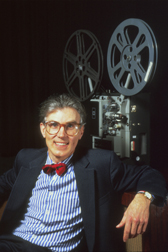 I have begun to educate myself on films that matter. Since then I've seen Late Spring, Shadows, Lancelot of the Lake, Funny Ha Ha, The Passion of Joan of Arc and others. I really feel I've started to grow. And now I'm even giving classical music a chance, based on your ecstatic reccomendations- Bach isn't so bad after all! Very exciting stuff.
I have begun to educate myself on films that matter. Since then I've seen Late Spring, Shadows, Lancelot of the Lake, Funny Ha Ha, The Passion of Joan of Arc and others. I really feel I've started to grow. And now I'm even giving classical music a chance, based on your ecstatic reccomendations- Bach isn't so bad after all! Very exciting stuff.
Someday I will buy some of your books from you but now the money goes to tuition and food. Libraries are helping me with everything else I need- they even have some of yours! I'm an English major, not sure exactly what I want to do. Thought about grad school but the more I think about getting in, making it through, writing a dissertation, getting an academic job and then living as a professor, it doesn't seem worth it. Maybe I'll teach high school some day. Try to shape some minds, get kids to think for themselves or at least start down that path. Like what you do.
I am most interested in joining the Peace Corps. I think that would be doing something that really matters- helping people who really need it. I often think about one of your replies to a letter, where you say that any kind of creative act is beautiful and worthwhile as long as it isn't geared towards making money -- a doctor helping a patient, a scientist making a discovery, and a few other examples I can't quite remember. Doing anything that is not about money but is instead about what really matters. Your writing on our depraved values has really made me think.
Thank you for clarifying so much in my life.
I have a question for you now: did you ever make a film or think about making a film? Why or why not?
And to end, here's a Thoreau quote (from "Slavery in Massachusetts") that I really liked: "If we would save our lives, we must fight for them."
Cheers,
David M.
RC replies:
David,
It's two days before Commencement, so this will have to be overly brief. Thanks for the heartfelt message. I hear from so many people across the world, and the range of the responses tells me how hungry, really hungry, students and artists and young people everywhere (all artists have to be young at heart, so they count in the generalization) are for complex, soulful expression. It tells me how our pop culture, and our "lite" educational system starves their souls. They are so eager to learn more, and it is so hard to find deep sources of knowledge in our culture. They are there--in the work of the artists I discuss on the site and in a thousand other places--but they are hidden. The wisdom-speakers don't really stand a chance of getting on TV or radio or into mainstream movie theaters. The businessmen-hucksters (Oprah, Charlie Rose, Leonard Maltin, Terry Gross, Dr. Phil, etc.) who serve as cultural gatekeepers won't allow it (and, of course, the gatekeepers themselves don't even understand what they are excluding, since they have little or no appreciation for real wisdom).
I went into academics thinking it would be different. That the university would be the one place where "deep knowledge" --knowledge that really understood and grappled with the things of the spirit and the fundamental quesions of life--would be cultivated. But my big disappointment in my academic career has been to discover that even most professors--the ones 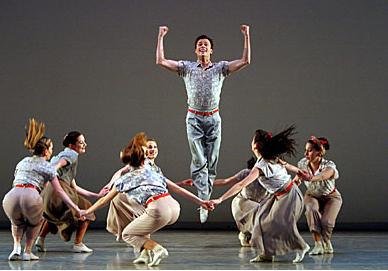 who supposedly teach courses about "art"--themselves don't understand or appreciate the arts any better--or any differently--from Charlie Rose and Leonard Maltin and Terry Gross. They can't really deal with art. They turn art into easier, less complex forms of knowledge. They turn it into sociology or history -- and they turn the study of art into research projects on "sources" and "intertextual relations." In their own way, they deprecate the value of art as much as Entertainment Tonight does. (Want a quick apercu on that subject? Without thinking much about it, I used the word "soul" in a presentation to prospective students in a big meeting about a week ago, and a faculty member standing next to me was so uncomfortable with my using the word that when he began speaking, he called attention to my use of it. What a world we live in when the supposed priests and worshippers at the shrine of the soul are themselves surprised or troubled when one of their group actually believes in the idea! That's the modern American university in a nutshell. If I used the word "love" some feminist professor would come down on me--or at least that is what happened in a course I took in grad school!)
who supposedly teach courses about "art"--themselves don't understand or appreciate the arts any better--or any differently--from Charlie Rose and Leonard Maltin and Terry Gross. They can't really deal with art. They turn art into easier, less complex forms of knowledge. They turn it into sociology or history -- and they turn the study of art into research projects on "sources" and "intertextual relations." In their own way, they deprecate the value of art as much as Entertainment Tonight does. (Want a quick apercu on that subject? Without thinking much about it, I used the word "soul" in a presentation to prospective students in a big meeting about a week ago, and a faculty member standing next to me was so uncomfortable with my using the word that when he began speaking, he called attention to my use of it. What a world we live in when the supposed priests and worshippers at the shrine of the soul are themselves surprised or troubled when one of their group actually believes in the idea! That's the modern American university in a nutshell. If I used the word "love" some feminist professor would come down on me--or at least that is what happened in a course I took in grad school!)
To answer your question about making films: I have made (and also acted in) a few films in my youth--just as I have done other arts activities. (I wrote so much poetry in my high school and college years I'd be embarrassed to tell you how many pages; and I wrote a still unfinished novel much more recently.) But I would argue that one doesn't have to be a carpenter to admire the beauty of a Chippendale table. Or a gothic stonemason to write a book about 13th century cathedral architecture. The critical activity -- the kinds of awareness and sensitivity and perceptiveness that result in deep appreciation of art and the ability to communicate one's insights to others in words -- is different from the artistic activity. If I had been able to say the things I need to say in my poetry or acting or novel-writing, I would not have become a critic and commentator. I would have remained an artist in those other forms. And to say the reverse, I know many many wonderful artists who are not very good at expressing their artistic insights in words. They can't tell you what they think. They have to make films or paint paintings or compose music to express what they know about life. So, in short, I don't blur the categories. Critics don't have to have made films, and filmmakers don't have to have written criticism. (And it is a very rare situation when one person is good at doing both; when one person does both, he or she is often terrible at one or the other.) But I do want the critics and appreciators to speak as deeply and meaningfully about the meaning of life and the function of the soul as the great artists do. And, to tell the truth, there are darn few of those sorts of critics. That's precisely why most critics don't really write about "art." That's why they turn it into "sociology" and "history" and "sources" and "intertextual relations."
All best wishes,
Ray
Subject: Ithaca
Ray,
It is lovely to see that great piece from James Joyce's Ulysses posted on the Mailbag section of your website. Ithaca is one of my favourite chapters from that book. Poetry in prose, and love poetry as well. Soul food. (Go to to Mailbag page 71, accessible via the blue page numbers at the top and bottom of this screen, to read Ray Carney's posting from James Joyce's novel.)
I have been watching some of Roberto Rossellini's great films recently-Europe'51, Journey to Italy, Stromboli, Il Messia, Francesco,guillare di Dio and Paisà.
Best wishes
Peter
RC replies:
Peter,

Thanks! I remember when I was a junior in college in this gigantic literature course called Humanities 6, where I had the great Ruben Brower (a legendary teacher at the school I went to) as my "section man" (like a TA) in a tiny subgroup that met once a week. We read Ulysses in the course, but more importantly, he read the "water" and "moon" passages out loud in class and it rocked my world.
I've been so unbelievably lucky with the teachers I've had. Four or five of them made me what I am today. Brower had something he called "reading in slow motion" that involved intense "present mindedness"--surfing the shifting waves of words, staying with the syntactic and tonal ebb and flow, second by second by second, and refusing to generalize beyond the experience of the instant moment. It's become my own way of teaching now. It puzzles and frustrates many of my students (who have been trained in other courses that if you don't "generalize" you are not being an "intellectual"), but I know there is a "me" sitting somewhere in each class who may have his life changed by the method, so I persist in my madness! Brower's method lives on.
And yes, yes, yes to Rossellini. I was just telling my TA yesterday that most of American indie film comes out of the work of Rossellini and DeSica. But, of course, there are also figures like Yasujiro Ozu and Robert Bresson too, to show us that there are many different paths to the palace of wisdom.
Ray
Peter Quinn replies:
Ray,
I love your passion. To thine own self be true.
"Present mindedness" is indeed so important. Staying in the present moment, keep coming back to the present. There is so much to be learned from the present. As Van Morrison would say, there is no other place to be. That is why I loved your posting the Joyce extract. We need to keep being reminded of what we love. It is so easy to forget. Joyce is beautiful in the way he makes us pay attention to what is happening in the present moment. We all try to escape that moment, or as they say in Alexander Technique terms, we all end-gain. We forget about the process. Greed and impatience.
It can take us a long time to know what we love, and appreciate what we love.
Take Mike Leigh's great film High Hopes. For me that film speaks to me of the supreme importance of listening, of being open, of being engaged, of the dangers on self-absorption, of the fragility of love and the ways it needs to be nurtured by listening and caring.
I agree about people like Ozu and Bresson. I love Autumn Afternoon, End of Summer, Early Summer. Same with Bresson. I heard him interviewed on the dvd of L'Argent. I think he was a very warm, down-to earth man.
Apropos Roberto Rossellini, I forget to mention his wonderful film La prise de pouvoir par Louis XIV. In many ways he his like Mike Leigh-the de-dramatization creates a wonderful sense of present-momentness. As Leigh says, he is always striving after documentary truth.
Ray, do you like Aki Kaurismaki? I am a big fan of his work. I recently saw his most recent film Lights in the Dusk. A beautiful love story amongst other things.
Some of my influences:
Mike Leigh,
Yasujiro Ozu
Roberto Rossellini
Van Morrison
Kris Kristofferson
Cassavetes
Aki Kaurismaki
James Joyce
Marcel Proust
I also love the Ingmar Bergman of Scenes from a Marriage and Saraband.
All people with heart and soul. Like your good self. All people who tell the truth with compassion. Holy Simplicity.
Peter
A note from RC: In answer to a question about Rodrigo Garcia's Nine Lives, I wrote a frequent correspondent to the site that my favorite scene was the supermarket scene that occurs early in the film. I also mentioned, in passing, that my focus on updating the Mailbag pages had come in for a degree of criticism from frequent visitors to the site. My note to her, her reply, and my response follow--in hope they are of interest to others:
Dear XXX,
Yes, it's an amazing film. There is so much to like in Nine Lives, but the supermarket scene is a favorite of mine. I used it in class recently as an illustration of the constant, unending "flow" of art's meanings that I am always telling my students about and that they are always struggling to understand. What makes it hard for them is that they have been trained by a million other courses and teachers and experiences to put people and their relationships (and characters in movies and their relationships with each other) into fixed categories: good guys and bad, distant and friendly people, kind and cruel figures, in love and out of love individuals; etc.. But that scene (and all of Garcia's work, thank God!), won't be pinned down that way. Garcia's art flows. His meanings are all in motion. Nothing will stand still. The relationship between Diane and Damion won't stop changing, moving, evolving, shifting, being adjusted. It's really quite amazing and wonderful. And, even better than that, it's true! It's a vision of truth in motion! At its very best, life does flow this way. Not always (because the same cognitive tendencies that make us want to nail down art make us want to nail down our lived experiences too), but at its best, life is this liquid, this mercurial, this slippery. Wow and yippee! If only all of our lives were as exciting as the life in Garcia's movies is.
To change subjects: You'll be interested to know I've been getting a bit of flack about spending so much time on updating the site Mailbag. Dan Jones's letter on page 70 is only one of dozens I've received asking why I put so much attention into it. But I really do think the Mailbag is important. You know each "genre" has its special expressive capabilities. Part of me is in my books. Part of me is in my essays. Part is in my interviews. But a totally different tone and feeling at the center of what I am is in the Mailbag, and only in the Mailbag. It won't fit into the books and essays. So it makes me wonder why some readers want something else. Maybe the problem is that these readers see the Mailbag as "personal" and since the "personal" is deprecated by our culture, they can't imagine it being as important as my "impersonal" writing. Of course, since I value the "personal" above everything else, I draw the opposite conclusion. I see the Mailbag as of the highest value of anything on the site. Comes down to two different views of expression, I guess.
Read what Jonas Mekas has to say about why we like Hollywood movies more than home movies for a similar observation. Why are we so impressed by abstractions? Why isn't personal expression the ideal form of expression?
Well, food for thought.
RC
My correspondent replied:
Subject: Heartsongs
Dear RC:
Question for the day: How would our world be different if it were art-driven rather than market-driven? What things would change and how? Your mailbag addresses these questions in a very deep and personal way, but also on a broader cultural level. What more could you possibly offer? Reminds me of the link I sent you a few years back starting with a view of the universe, scaling it down, down, down to the molecular level within a leaf. Some people don't understand what they're looking for even when it's all there in plain sight. As far as the criticism of your "personal" mb not being important, I'm reminded of Emerson: " To believe your own thought, to believe that what is true for you in your private heart is true for all men -- that is genius..." In my book, the greatest gift you can give to another is your what's in your heart.
Don't ever think your mailbag isn't important. It touches lives beyond what you can ever know, because you share your heart's truths. In my wisdom group this morning, I was aware of the birds' sweet and beautiful chirping as we meditated. I thought of a dying man sitting outside saying that the birds chirping was the most beautiful thing he had ever heard. We each have a heartsong as glorious as a bird's, we must sing it as only we can do. As you do in all that you do. Keep singing, don't ever stop!
RC replied:
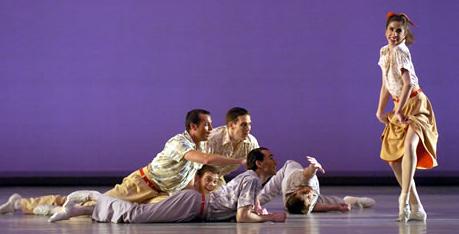 Thanks for the reassurance. I doubt myself so much of the time. I feel so out of step with the way other people think.
Thanks for the reassurance. I doubt myself so much of the time. I feel so out of step with the way other people think.
Anyway.......... Have you heard the story about the Zen Master?
Student: Oh, great master, please tell me how I can enter the path.
Master: Can you hear the stream gurgling out in the woods?
Student: Yes?
Master: Enter there!
***
So deep. I love it. And you see, you could have been a Zen Master! It's your point. But then there is also Charlotte Beck's reply. (I paraphrase, from a ten year-old memory of reading one of her books, so please make allowances.)
"A student called me and said she had been sitting and heard the call of a dove and thought she finally had understood some part of the meaning of life. I laughed and told her that wasn't the meaning of life. That was a dove calling. I told her that when her boss yelled at her at work, and she understood the meaning of life from that, then we would have something to talk about. She might have really learned something then!"
So it's not all chirping birds and babbling brooks and cooing doves! It's also when you stub your toe or clean the toilet or get yelled at at work. A word to the wise.
Love,
--R.C.
RC,
Thanks, I hear it.
XXX
RC replies:
Oh, you're so deep. You turned my phrase! Thank you!
RC
And "Now a Word From Michael Moore" Department. I'm not the only one with legal problems recently (click here to learn more about that). This just in from Michael Moore:
"Sicko" Is Completed and We're Off to Cannes!
May 17, 2007
Friends, It's a wrap! My new film, "Sicko," is all done and will have its world premiere this Saturday night at the Cannes Film Festival. As with "Bowling for Columbine" and "Fahrenheit 9/11," we are honored to have been chosen by this prestigious festival to screen our work there.
My intention was to keep "Sicko" under wraps and show it to virtually no one before its premiere in Cannes. That is what I have done and, as you may have noticed if you are a recipient of my infrequent Internet letters, I have been very silent about what I've been up to. In part, that's because I was working very hard to complete the film. But my silence was also because I knew that the health care industry -- an industry which makes up more than 15 percent of our GDP -- was not going to like much of what they were going to see in this movie and I thought it best not to upset them any sooner than need be.
Well, going quietly to Cannes, I guess, was not to be. For some strange reason, on May 2nd the Bush administration initiated an action against me over how I obtained some of the content they believe is in my film. As none of them have actually seen the film (or so I hope!), they decided, unlike with "Fahrenheit 9/11," not to wait until the film was out of the gate and too far down the road to begin their attack.
Bush's Treasury Secretary, Henry Paulson, launched an investigation of a trip I took to Cuba to film scenes for the movie. These scenes involve a group of 9/11 rescue workers who are suffering from illnesses obtained from working down at Ground Zero. They have received little or no help with their health care from the government. I do not want to give away what actually happens in the movie because I don't want to spoil it for you (although I'm sure you'll hear much about it after it unspools Saturday). Plus, our lawyers have advised me to say little at this point, as the film goes somewhere far scarier than "Cuba." Rest assured of one thing: no laws were broken. All I've done is violate the modern-day rule of journalism that says, "ask no questions of those in power or your luncheon privileges will be revoked."
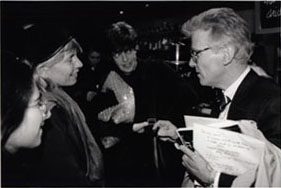
This preemptive action taken by the Bush administration on the eve of the "Sicko" premiere in Cannes led our attorneys to fear for the safety of our film, noting that Secretary Paulson may try to claim that the content of the movie was obtained through a violation of the trade embargo that our country has against Cuba and the travel laws that prohibit average citizens of our free country from traveling to Cuba. (The law does not prohibit anyone from exercising their first amendment right of a free press and documentaries are protected works of journalism.)
I was floored when our lawyers told me this. "Are you saying they might actually confiscate our movie?" "Yes," was the answer. "These days, anything is possible. Even if there is just a 20 percent chance the government would seize our movie before Cannes, does anyone want to take that risk?"
Certainly not. So there we were last week, spiriting a duplicate master negative out of the country just so no one from the government would take it from us. (Seriously, I can't believe I just typed those words! Did I mention that I'm an American, and this is America and NO ONE should ever have to say they had to do such a thing?)
I mean, folks, I have just about had it. Investigating ME because I'm trying to help some 9/11 rescue workers our government has abandoned? Once again, up is down and black is white. There are only two people in need of an investigation and a trial, and the desire for this across America is so widespread you don't even need to see the one's smirk or hear the other's sneer to know who I am talking about.
But no, I'm the one who now has to hire lawyers and sneak my documentary out of the country just so people can see a friggin' movie. I mean, it's just a movie! What on earth could I have placed on celluloid that would require such a nonsensical action against me? Ok. Scratch that.
Well, I'm on my way to Cannes right now, a copy of the movie in my bag. Don't feel too bad for me, I'll be in the south of France for a week! But then it's back to the U.S. for a number of premieres and benefits and then, finally, a chance for all of you to see this film that I have made. Circle June 29th on your calendar because that's when it opens in theaters everywhere across the country and Canada (for the rest of the world, it opens in the fall).
I can't wait for you to see it.
Yours,
Michael Moore
P.S. I will write more about what happens from Cannes. Stay tuned on my website, MichaelMoore.com.
Subject: The wacky world of film distribution
RC,
Thought you'd get a kick out of this. I was looking for an update on how Michael Moore's Sicko was received at the Cannes Film Festival (see the preceding note and letter from Michael Moore) and found that the distributor of Sicko is ... drum roll, please!... your favorite, Harvey Weinstein. Doesn't surprise me he would have his fingers in the pie, Farenheit 911's worldwide gross was $220 million, distributed by Harvey and brother Bob when Disney dropped it due to political content. Weinstein's group will be paying MM's legal fees if Bushco comes after him about going to Cuba for filming portions of Sicko. Pigs at the trough... Controversy/truthtelling sells in the "right" market only with the "right" backers, otherwise they wouldn't give him the time of day. Your mailbag comment (see above) was right on the money about "gatekeepers." I remember you used to say about watching indie film that you liked to drink your whiskey "neat." It seems that it's increasingly harder to get our truth "neat" anymore, it's mostly only a filtered version of what we're allowed to see by the cultural icons. Watered-down whiskey, spiked with hype. A Harvey Weinstein cooler. Or an Oprah sour. I don't knock MM for truthtelling, but wonder what he had to give up in order to get HW to distribute it. Payback.
M
RC replies:
Point well-taken. I debated for a few minutes about whether I should post the Moore letter in the first place. It is so obviously a PR ploy: "Come see the movie George Bush tried to suppress." The PR types (and, even more regrettably, the filmmakers) have no consciences at all. Many of them would sell atomic secrets to terrorists if it helped ticket sales. Every year there are four or five of these ploys. "Come see the movie that XXXX hated." "Come see the film that XXXX tried to censor." "Come see the movie everyone is walking out on." It's all just another sales campaign, fundamentally no different from any other Madison Avenue pitch. (Look at last winter's guerilla ad campaign that brought out the Boston bomb squad and gridlocked commuter traffic for hours to promote some television program. Those two guys got off with not even having to pay a fine, let alone spend time in jail.)
Since you're quoting back to me a statement I made in my youth (a statement I don't remember making by the way--but that doesn't mean I didn't make it!!!), let me quote another one back to you. I once said the only movies I was interested in seeing were ones that would never, in any recognizable present or future version of America, be able to be broadcast on television. Another time I remember saying I dreamed of movies that could or would do what Igor Stravinsky's Sacre du printemps and Jean Renoir's Rules of the Game had done when they were first presented: Shock, provoke, upset people into booing and hissing at them; drive people out of the theater; and offend so many of them that the shows would be closed and the works withdrawn.
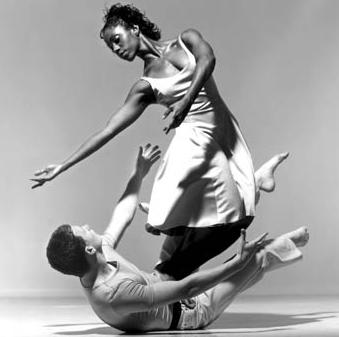 Could that,even conceivably, happen with a work of art today? Or would the putative "shock and awe" (yes, the military has appropriated Edmund Burke's and Samuel Taylor Coleridge's descriptions of the sublime too!) only be made part of the marketing campaign? Capitalism has an amazing capacity to absorb shocks to the system and convert them into bumper-sticker ad campaigns. It has an amazing capacity to take the reality out of the alleged "attack" and turn it into "entertainment." P.T. Barnum brings "thrills and chills" to the middle-class. Games replace reality and meaning leaks out. Everything becomes "as if." Postmodernism becomes its own advertising campaign.
Could that,even conceivably, happen with a work of art today? Or would the putative "shock and awe" (yes, the military has appropriated Edmund Burke's and Samuel Taylor Coleridge's descriptions of the sublime too!) only be made part of the marketing campaign? Capitalism has an amazing capacity to absorb shocks to the system and convert them into bumper-sticker ad campaigns. It has an amazing capacity to take the reality out of the alleged "attack" and turn it into "entertainment." P.T. Barnum brings "thrills and chills" to the middle-class. Games replace reality and meaning leaks out. Everything becomes "as if." Postmodernism becomes its own advertising campaign.
Lionel Trilling's brilliant and despairing and hilarious 1961 essay "On the Teaching of Modern Literature" is the relevant reference point for arts education, by the way. If someone among the site's readership can find the text of it somewhere on the internet, I'd encourage them to send the link to me and I'll post a few paragraphs. Or if someone were willing type up a few paragraphs from the original printed version of the essay as a MS Word file--specifically the paragraphs concerned with the inability of Trilling's students to look "into the abyss"-- I'd love to post them as an illustration of the inveterate tendency of academia to domesticate artistic dangers and tame artistic threats.
Ray
A note from Ray Carney:
A conscientious site visitor located a short section from Trilling's essay (see the reference to it above) on the Internet and emailed a paragraph to me. If anyone else is able to send me a longer section, please do and I'll post it. In the passage below, Trilling is 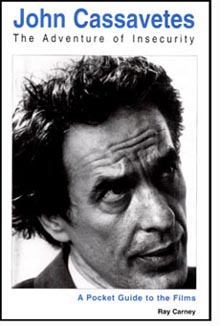 talking about his discouragement at the tepidness of his students' responses to the revolutionary, consciousness-assaulting, world-changing literature he assigns them to read -- and, more generally, about how academic inquiry in the modern university encourages a merely "technical/technological" response to art and culture that removes the reality from the works and events studied and turns them into a deracinated, abstract, intellectual series of dates, names, facts, and "points." Studying art becomes no different from learning mathematics or chemistry. The life, the wonder, the mystery, the danger is left out of the account. In Trilling's memorable phrase, "the attack is contained." The technological approach to criticism turns art into abstract categories, concepts, and jargon-laden terminology. Art is not treated as a form of insight and wisdom, but as a "cultural construction." Studying works of art does not involve learning about life; it involves learning how to deal with concepts like "patriarchy," "the male gaze," "intertextuality," and the "social construction of identity." (Read some "advanced" academic film criticism if you think I am exaggerating. Academic film commentary has really become this disconnected from life. Click here to read an account of what goes on in the name of "film study" in many universities today. And click here to read another Mailbag response that touches on this issue.) In other words, modern higher education in the arts has become an extension of the modern technocratic state, where other matters of life and death are translated into equally empty intellectual abstractions disconnected from the lives of ordinary people. Terminology blocks the view of experience; technology replaces human involvement. -- R.C
talking about his discouragement at the tepidness of his students' responses to the revolutionary, consciousness-assaulting, world-changing literature he assigns them to read -- and, more generally, about how academic inquiry in the modern university encourages a merely "technical/technological" response to art and culture that removes the reality from the works and events studied and turns them into a deracinated, abstract, intellectual series of dates, names, facts, and "points." Studying art becomes no different from learning mathematics or chemistry. The life, the wonder, the mystery, the danger is left out of the account. In Trilling's memorable phrase, "the attack is contained." The technological approach to criticism turns art into abstract categories, concepts, and jargon-laden terminology. Art is not treated as a form of insight and wisdom, but as a "cultural construction." Studying works of art does not involve learning about life; it involves learning how to deal with concepts like "patriarchy," "the male gaze," "intertextuality," and the "social construction of identity." (Read some "advanced" academic film criticism if you think I am exaggerating. Academic film commentary has really become this disconnected from life. Click here to read an account of what goes on in the name of "film study" in many universities today. And click here to read another Mailbag response that touches on this issue.) In other words, modern higher education in the arts has become an extension of the modern technocratic state, where other matters of life and death are translated into equally empty intellectual abstractions disconnected from the lives of ordinary people. Terminology blocks the view of experience; technology replaces human involvement. -- R.C
When the term-essays come in, it is plain to me that almost none of the students have been taken aback by what they have read: they have wholly contained the attack... In their papers, like poor hunted creatures in a Kafka story, they take refuge first in misunderstood large phrases, then in bad grammar, then in general incoherence. After my pedagogical exasperation has run its course, I find that I am sometimes moved to give them a queer respect... The rest, the minds that give me the A papers and the B papers and even the C+ papers, move through the terrors and mysteries of modern literature like so many Parsifals, asking no questions at the behest of wonder and fear. Or like so many seminarists who have been systematically instructed in the constitution of Hell and the ways to damnation. I asked them to look into the Abyss, and, both dutifully and gladly, they have looked into the Abyss, and the Abyss has greeted them with the grave courtesy of all objects of serious study, saying: "interesting, am I not? And exciting, if you consider how deep I am and what dread beasts lie at my bottom. Have it well in mind that a knowledge of me contributes materially to your being whole, or well-rounded men.'" --from Lionel Trilling, "On the Teaching of Modern Literature" (printed in Beyond Culture).
A note from Ray Carney: In response to the posting about Rajendra Roy being appointed the new head of the Museum of Modern Art Film Program (see the top of Mailbag page 70, accessible via the blue page number menus at the top and bottom of this page), an important independent filmmaker wrote me an email which relayed his own and others' experiences with Roy in film festival settings. Given Roy's position and power within the tiny world of independent film programming, I have anonymized the filmmaker's note and been forced to leave out several descriptions. (My edits are indicated by parenthetical statements.) But, even in the heavily edited result, the point is still clear, I believe. Readers may draw their own conclusions. --R.C.
Subject: pretty boy Roy
Hey Prof.
My palm to chin the other day I was flipping through that wonderful mailbag of yours and the Raj Roy name caught my eye. All of your worst MoMa fears will come true, better you hear it from me.
Here it goes. I believe with all my heart in judging the shit out of people because i love to be proven wrong and have found that one's first reaction, that instinctive gut feeling, is usually the right one. Then as we get to know that person we accept. How many times has someone told you "well that's Ralph" or "ah! ya gotta understand Morty." My closest friends are the most flawed; my acquaintances-near perfect.
That's why I feel confident in saying Raj Roy is a rotten human being and how he actually became involved in deciding what people can and can't see has got something to do with Satan (and not the good Satan, the bad one that buys imagination).
I was at (an important film festival), Raj Roy was on some jury, I was there with (an important movie), I approached Roy at a party. (A long anecdote about how the filmmaker was treated badly by Roy follows.) I've been rejected, brushed off and ignored by many-a-programming-folk, but ... (more omitted material).
Later when I was telling (another filmmaker) about Roy's (rude behavior) "Raj Roy, on his blackberry during (the screening of xxx), one of the films he's judging. That's the kind of programmer he is."
While I'm sure there's another POV to see this from I choose not to. Just wanted to tell you that story. Off my assumption--and "when you assume" you're usually right--of Raj Roy, my feeling: the pigs have taken the MoMa.
You keep fighting. You keep fighting. Thanks again for everything with (my film), etc...
masculine love,
(name withheld)
Ray Carney replies:
Love the stories! Wish there was some way I could just post a few untraceable sentences up on the Mailbag. Say just the first three paras and the Blackberry part, and leave out the middle-- with no names or film titles included?
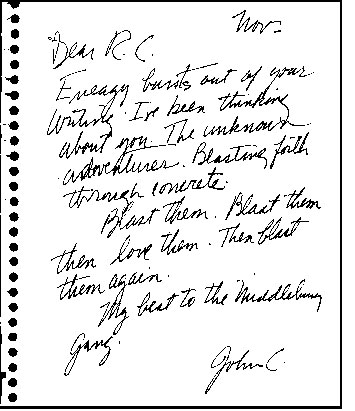 Young filmmakers and naive viewers have to hear this stuff. This behavior is EVERYWHERE! Hey, man, these film festival programmers and judges are the ones who discover YOU! THEY are the important ones in the situation. Who the f*** do you think YOU are when you want to talk to them at a party?!!!!! And why should they actually have to pay attention to the films that they are judging? They've decided what they think after five minutes anyway. Email must be checked. Messages must be sent. That's what matters. After all, they are VERY IMPORTANT people, much more important than the stupid, inarticulate filmmakers they have to interact with at social events.
Young filmmakers and naive viewers have to hear this stuff. This behavior is EVERYWHERE! Hey, man, these film festival programmers and judges are the ones who discover YOU! THEY are the important ones in the situation. Who the f*** do you think YOU are when you want to talk to them at a party?!!!!! And why should they actually have to pay attention to the films that they are judging? They've decided what they think after five minutes anyway. Email must be checked. Messages must be sent. That's what matters. After all, they are VERY IMPORTANT people, much more important than the stupid, inarticulate filmmakers they have to interact with at social events.
To descend from the snide and condescending to the ridiculous and absurd--of course, what I mean is to contemplate what gets into the newspaper --at a more journalistic level, I can't tell you how many reviewers' screenings I've attended of major art works (e.g. the films of Mike Leigh), where I've sat behind two buddy boy film reviewers who spent the ENTIRE SCREENING alternately talking to each other, making smart remarks and bon mots about what was on screen, eating their lunch, and scurrying out into the lobby to make cell calls. And then, three weeks later, opened up the paper to read about how "disjointed" or "boring" the film was, based on the ten minutes of it that they actually watched!
Of course, these guys are the same people willing to wait hours to get an interview with Julia Roberts or Tom Hanks or Ben Affleck or Brad Pitt. That's important.
That's what we're up against. When it comes down to it, the academy is really no different. Every university I know of has a course where they examine the "state of contemporary film criticism." Yet not one professor ever talks about this side of it. And, in terms of other professionals in the field: they're all too afraid of folks like Raj Roy to dare to raise even a single question about his qualifications and beliefs.
Ray
The filmmaker replied:
....You're right too, about everything. critics and academy. The worst part is most of those prof's are smart cookies too. Students are getting a grade and not a learning a damn thing about where information comes from. and if someone thinks what they're studying is crap they can't make the argument....
(name withheld)
"For what it's worth" department: Even at this late date, to me WTC still doesn't mean "World Trade Center." I've recently been wearing out my recording of Johann Sebastian Bach's "The Well-Tempered Clavier" (Books 1 and 2, but especially Book 1). I have several  different recordings, including one by Vladimir Feltsman from 1993 (a terrific performance), a second by Glenn Gould (avoid at all costs, his spikey fingering and ignorance of pedal work will make your ears bleed), and a third 2003 recording by Daniel Barenboim (the product of a lifetime of study, and a very, very deep interpretation). I am told André Watts also has a good recording and András Schiff another strong one, but I haven't listened to them. But the piece itself, the first book in particular, is a knock-down, knock-out work of the highest, greatest genius. Earth has always had an enormous range of human intelligence. Its individuals are spread out from the lowest of the low to the highest of the high. Bach is proof of what the super high end is capable of.
different recordings, including one by Vladimir Feltsman from 1993 (a terrific performance), a second by Glenn Gould (avoid at all costs, his spikey fingering and ignorance of pedal work will make your ears bleed), and a third 2003 recording by Daniel Barenboim (the product of a lifetime of study, and a very, very deep interpretation). I am told André Watts also has a good recording and András Schiff another strong one, but I haven't listened to them. But the piece itself, the first book in particular, is a knock-down, knock-out work of the highest, greatest genius. Earth has always had an enormous range of human intelligence. Its individuals are spread out from the lowest of the low to the highest of the high. Bach is proof of what the super high end is capable of.  In fact, he's almost off the human scale. He might as well have been from another planet in another galaxy. He blows most of the rest of us away.
In fact, he's almost off the human scale. He might as well have been from another planet in another galaxy. He blows most of the rest of us away.
As you listen, follow along in the WTC score if you possibly can. Ponder the shifting, sliding, fluidly flowing harmonies. Harmonies that are the greatest in all of human music. Bach is harmony. A total, mind-bending harmonic view of life. Much deeper than a melodic or rhythmic view. Check this piece out. Listen. Listen again. Then listen a hundred times more. Stay in the moment. Stay with each chord, each triad, each fourth, fifth, seventh--each augmentation and diminishment. Follow the supersubtle harmonic shifts and changes. Follow the harmonic, the rhythmic, the melodic drama. Bach, and this music, is the meaning of life at its finest, noblest, best, most exciting, most scary, sacred, and mysterious -- R.C.
This
is only the "To Print" page. To go to the regular page of Ray Carney's www.Cassavetes.com on which this text appears, click
here, or close this window if you accessed the "To Print" page
from the regular page. Once you have brought up the regular page, you may use
the menus to reach all of the other pages on the site.
 I have begun to educate myself on films that matter. Since then I've seen Late Spring, Shadows, Lancelot of the Lake, Funny Ha Ha, The Passion of Joan of Arc and others. I really feel I've started to grow. And now I'm even giving classical music a chance, based on your ecstatic reccomendations- Bach isn't so bad after all! Very exciting stuff.
I have begun to educate myself on films that matter. Since then I've seen Late Spring, Shadows, Lancelot of the Lake, Funny Ha Ha, The Passion of Joan of Arc and others. I really feel I've started to grow. And now I'm even giving classical music a chance, based on your ecstatic reccomendations- Bach isn't so bad after all! Very exciting stuff.


 Young filmmakers and naive viewers have to hear this stuff. This behavior is EVERYWHERE! Hey, man, these film festival programmers and judges are the ones who discover YOU! THEY are the important ones in the situation. Who the f*** do you think YOU are when you want to talk to them at a party?!!!!! And why should they actually have to pay attention to the films that they are judging? They've decided what they think after five minutes anyway. Email must be checked. Messages must be sent. That's what matters. After all, they are VERY IMPORTANT people, much more important than the stupid, inarticulate filmmakers they have to interact with at social events.
Young filmmakers and naive viewers have to hear this stuff. This behavior is EVERYWHERE! Hey, man, these film festival programmers and judges are the ones who discover YOU! THEY are the important ones in the situation. Who the f*** do you think YOU are when you want to talk to them at a party?!!!!! And why should they actually have to pay attention to the films that they are judging? They've decided what they think after five minutes anyway. Email must be checked. Messages must be sent. That's what matters. After all, they are VERY IMPORTANT people, much more important than the stupid, inarticulate filmmakers they have to interact with at social events. different recordings, including one by Vladimir Feltsman from 1993 (a terrific performance), a second by Glenn Gould (avoid at all costs, his spikey fingering and ignorance of pedal work will make your ears bleed), and a third 2003 recording by Daniel Barenboim (the product of a lifetime of study, and a very, very deep interpretation). I am told André Watts also has a good recording and András Schiff another strong one, but I haven't listened to them. But the piece itself, the first book in particular, is a knock-down, knock-out work of the highest, greatest genius. Earth has always had an enormous range of human intelligence. Its individuals are spread out from the lowest of the low to the highest of the high. Bach is proof of what the super high end is capable of.
different recordings, including one by Vladimir Feltsman from 1993 (a terrific performance), a second by Glenn Gould (avoid at all costs, his spikey fingering and ignorance of pedal work will make your ears bleed), and a third 2003 recording by Daniel Barenboim (the product of a lifetime of study, and a very, very deep interpretation). I am told André Watts also has a good recording and András Schiff another strong one, but I haven't listened to them. But the piece itself, the first book in particular, is a knock-down, knock-out work of the highest, greatest genius. Earth has always had an enormous range of human intelligence. Its individuals are spread out from the lowest of the low to the highest of the high. Bach is proof of what the super high end is capable of.